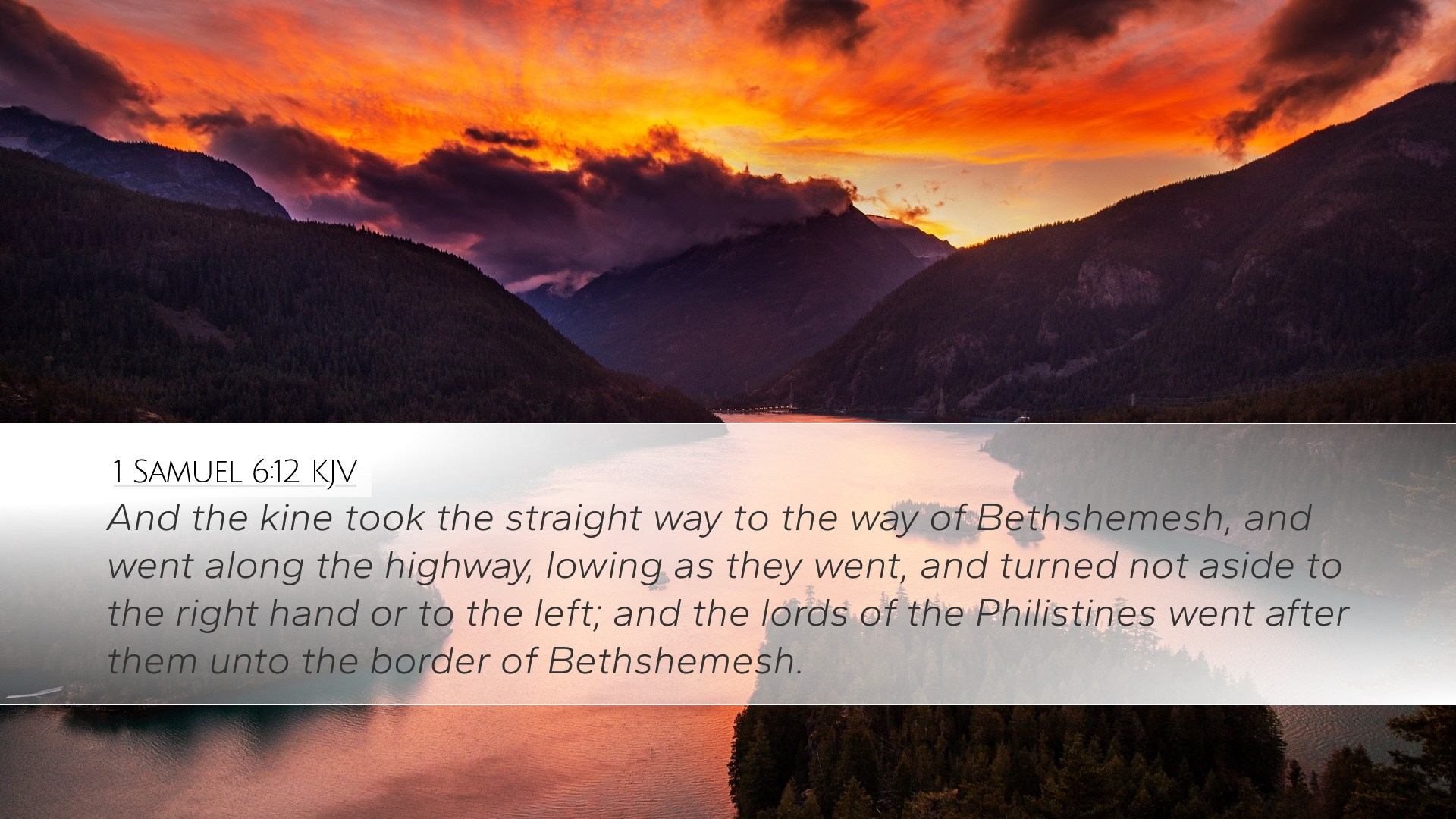1 Samuel 6:12 Commentary
Verse: "And the cows took the straight way to Bethshemesh, and went along the highway, lowing as they went: and turned not aside to the right hand or to the left; and the lords of the Philistines went after them unto the border of Bethshemesh."
Introduction
1 Samuel 6:12 offers a rich tapestry of theological and historical significance, marking a pivotal moment in the narrative of Israel's relationship with both the Ark of the Covenant and the Philistines. This verse encapsulates God's sovereignty and the response of creation to divine authority, revealing insights into obedience, divine intervention, and the nature of God's covenant people.
The Context of the Verse
The backdrop of this passage centers around the Ark of the Covenant, which had been captured by the Philistines. The events in 1 Samuel 6 occur after a series of calamities befell the Philistines due to the presence of the Ark among them. When the decision was made to return the Ark, the cows that carried it played a crucial role.
Commentary Insights
1. The Unnatural Guidance of the Cows
According to Matthew Henry, the cows' journey is striking given their maternal instincts, as they were separated from their calves. Their lowing reflects a natural inclination, yet their unwavering path reveals a divine influence overriding their instincts. Henry notes that this highlights God's sovereignty, demonstrating that even inanimate creation can fulfill God's will.
2. The Straight Path to Bethshemesh
Adam Clarke emphasizes the significance of the "straight way" taken by the cows. This symbolizes the clear path of obedience that leads to God’s people. Theologically, a straight path can be viewed as a metaphor for righteous living and divine direction. Clarke posits that the Ark's return to Israel illustrates God's desire to restore His presence among His people, despite their past sins.
3. The Observance of the Philistines
Albert Barnes notes that the lords of the Philistines followed the cows to observe the outcome of this unique event. Their presence signifies not only their curiosity but also the recognition of Israel's God at work. This encounter demonstrates that even adversaries can witness God's power and majesty, serving as a testament to His covenant with Israel.
4. Lowing as They Went
The lowing of the cows, as captured by Henry, is a poignant reminder of the anguish experienced by created beings when separated from their young. This action could be interpreted as a reflection of the cost of obedience—a theme deeply resonant in the lives of believers who often sacrifice for the Lord's purpose. The emotional and physical manifestation of their separation speaks volumes about the nature of obedience to God.
Theological Reflections
1. The Sovereignty of God
The orchestration of events leading to the Ark's return underscores God's sovereignty over both nature and nations. He directs creation to accomplish His purposes. This is a vital reminder for pastors and theologians that God is still actively involved in guiding the affairs of both His people and the world.
2. An Illustration of Obedience
The cows' impartiality towards direction reflects the essence of obedience to God. In a world rife with distractions and alternatives, the divine call is to stay on the path He sets before us. Believers are encouraged to stay focused on the call of God, undeterred by worldly distractions.
3. The Urgency and Directness of God's Will
The straight path taken by the cows signifies the clarity and directness with which God guides His people. As noted in Barnes' commentary, this serves as a metaphor for the necessity of following God's lead without deviation. Pastors can find inspiration in this to encourage congregants to pursue God's will with dedication and clarity.
Conclusion
1 Samuel 6:12 is more than a historical account; it is a profound illustration of God’s sovereignty, the importance of obedience, and His desire for relationship with His people. As we reflect on this passage, may we be reminded of our role in fulfilling God’s divine purpose and our call to remain steadfast on the path He sets before us. This commentary harnesses the insights from renowned theologians and aims to provide meaningful reflections for pastors, students, and scholars alike.


